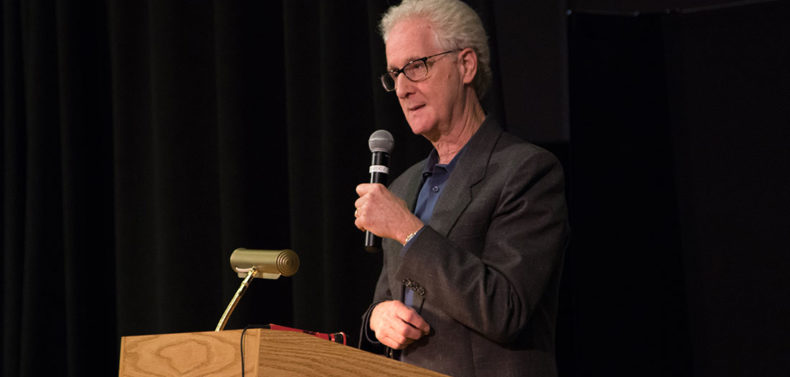Democracy in America was imperiled two years ago, on Jan. 6, 2021, when a right-wing mob stormed the U.S. Capitol in an attempt to overturn the results of the 2020 election. Democracy was again imperiled this month in Brazil, when a similar mob ransacked government buildings in that nation’s capital, Brasilia, after supporters of the country’s right-wing former president claimed that the election had been stolen from their candidate, the bombastic and bellicose Jair Bolsanaro, sometimes called “Trump of the Tropics.”
Long before assaults on democracy by riotous mobs in Washington and Brasilia, writers were sounding the alarm that democracy was fragile and under attack. When Donald Trump was elected in 2016, It Can’t Happen Here by Sinclair Lewis enjoyed a resurgence in sales. Published in 1935, It Can’t Happen Here is a novelist’s grim vision of a fascist dictatorship that ends democracy in America. It is a work of fiction, but other writers of today have penned books of fact about democracy’s perils and possibilities.
One of those authors is Richard Dien Winfield, a philosophy professor at the University of Georgia and a former congressional candidate. His Democracy Unchained: How We Should Fulfill Our Social Rights and Save Self-Government, published in 2020, is a detailed series of proposals for America’s present democratic republic to become a nation of both political and economic rights for its citizens. Echoing the calls for both political and economic justice preached by Martin Luther King Jr. in the 1960s, Winfield writes, “ …Our democracy is in jeopardy if we cannot secure the family and social rights on which political freedom depends.”
Winfield reminds readers that President Franklin D. Roosevelt proposed a new bill of rights in 1944 that would guarantee all Americans economic security, affordable housing and medical care. “Roosevelt died before being able to implement any of his new bill of rights,” writes Winfield, “and to this day, our Constitution still fails to guarantee the right to employment at a fair wage, to food and clothing, to decent housing, to health care, and to education.” FDR’s plans were backed by the United Nations in 1948, but today remain “ignored and unenforced” around the world and particularly in the United States, laments Winfield.
“The time to save our democracy is growing short,” says Winfield, and he minces no words in his view that “American ‘democracy’ made its debut as a White Supremacist, patriarchal oligarchy, privileging heterosexuality.” Still, the writer showed optimism by running issue-oriented though unsuccessful campaigns for the U.S. House of Representatives in 2018 and Senate in 2020, and by writing a book filled with progressive proposals “to prove that the pen can be more powerful than any single political campaign. May many others… be inspired to take up the social rights agenda and make it a reality before it is too late.”
Also published in 2020, Twilight of Democracy: The Seductive Lure of Authoritarianism by Anne Appelbaum says, “People are often attracted to authoritarian ideas because they are bothered by complexity… they seek solutions in new political language that makes them feel safer and more secure.” The author decries the decline of American newspapers in the Internet Age: “Many, though not all, have stopped reporting news altogether; many, though not all, will eventually cease to exist.” She calls for a renewed democracy that demands “participation, argument, effort [and] struggle” from citizens.
How Democracies Die by Steven Levitsky and Daniel Ziblatt was published in 2018, months before the 2020 election and the 2021 Capitol insurrection, but its conclusions are prescient. In its “Four Warning Signs of Authoritarian Politicians,” the book says, “We should worry when a politician 1) rejects in words or actions, the democratic rules of the game, 2) denies the legitimacy of opponents, 3) tolerates or encourages violence, or 4) indicates a willingness to curtail the civil liberties of opponents, including the media.”
In 1835, French author Alexis de Tocqueville published Democracy in America, his seminal documentation of the politics and culture of the new nation. The books mentioned here follow in his footsteps. Winfield is correct in his assertion that, “What we do in the next few years is critical for the future of the United States, as well as for the prospects of all humanity.”
Like what you just read? Support Flagpole by making a donation today. Every dollar you give helps fund our ongoing mission to provide Athens with quality, independent journalism.










